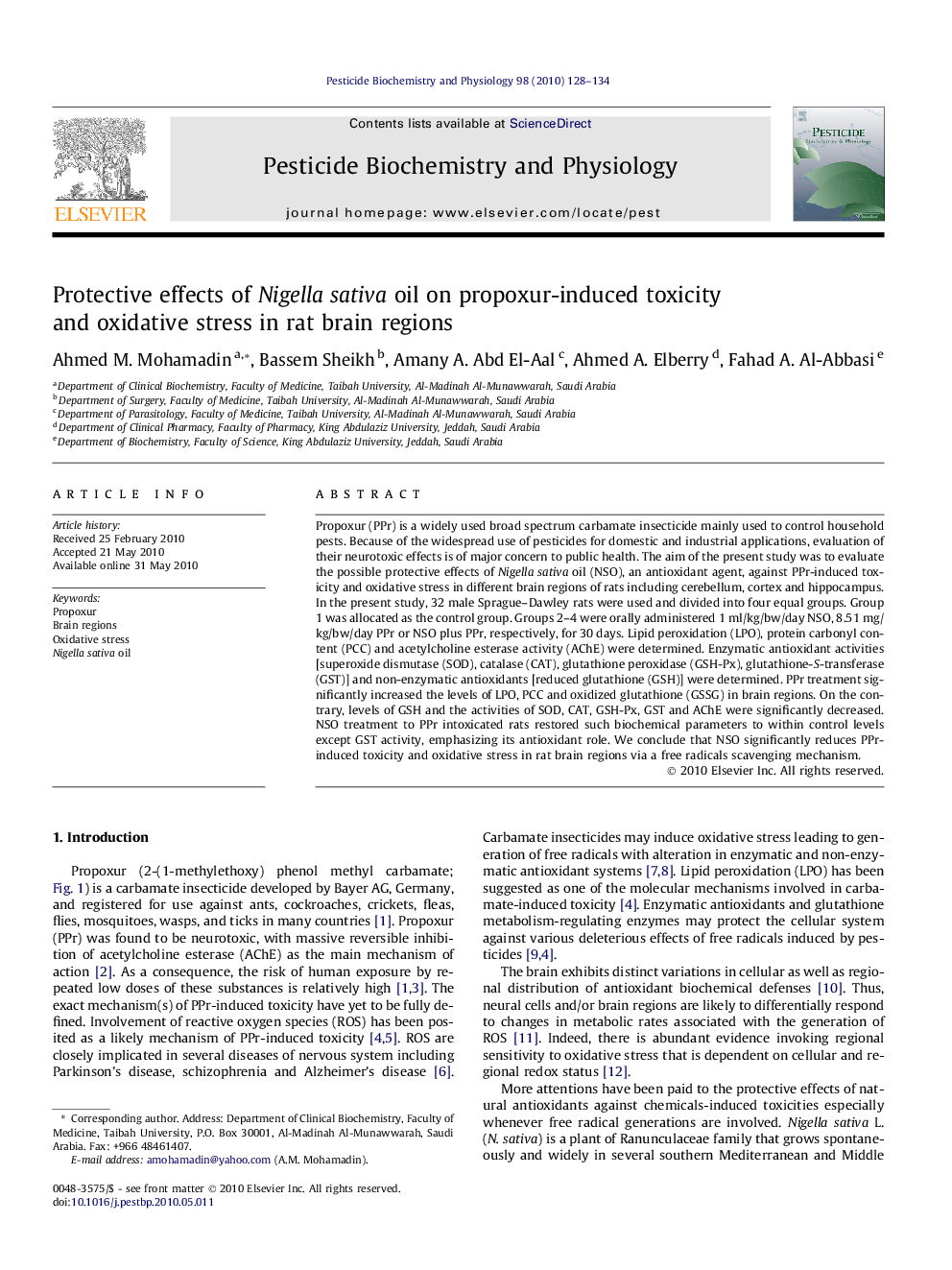| Article ID | Journal | Published Year | Pages | File Type |
|---|---|---|---|---|
| 2009709 | Pesticide Biochemistry and Physiology | 2010 | 7 Pages |
Propoxur (PPr) is a widely used broad spectrum carbamate insecticide mainly used to control household pests. Because of the widespread use of pesticides for domestic and industrial applications, evaluation of their neurotoxic effects is of major concern to public health. The aim of the present study was to evaluate the possible protective effects of Nigella sativa oil (NSO), an antioxidant agent, against PPr-induced toxicity and oxidative stress in different brain regions of rats including cerebellum, cortex and hippocampus. In the present study, 32 male Sprague–Dawley rats were used and divided into four equal groups. Group 1 was allocated as the control group. Groups 2–4 were orally administered 1 ml/kg/bw/day NSO, 8.51 mg/kg/bw/day PPr or NSO plus PPr, respectively, for 30 days. Lipid peroxidation (LPO), protein carbonyl content (PCC) and acetylcholine esterase activity (AChE) were determined. Enzymatic antioxidant activities [superoxide dismutase (SOD), catalase (CAT), glutathione peroxidase (GSH-Px), glutathione-S-transferase (GST)] and non-enzymatic antioxidants [reduced glutathione (GSH)] were determined. PPr treatment significantly increased the levels of LPO, PCC and oxidized glutathione (GSSG) in brain regions. On the contrary, levels of GSH and the activities of SOD, CAT, GSH-Px, GST and AChE were significantly decreased. NSO treatment to PPr intoxicated rats restored such biochemical parameters to within control levels except GST activity, emphasizing its antioxidant role. We conclude that NSO significantly reduces PPr-induced toxicity and oxidative stress in rat brain regions via a free radicals scavenging mechanism.
